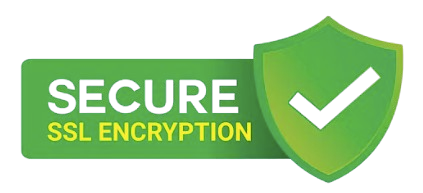Identity theft is a serious crime that can wreak havoc on your finances, credit score, and even your sense of security. It occurs when someone steals your personal information, such as your Social Security number, credit card number, or name, and uses it to impersonate you for fraudulent purposes.
In today's digital world, where we share a significant amount of personal information online, identity theft is a growing concern. But fear not, knowledge is power! By understanding the different types of identity theft, how it happens, and the steps you can take to protect yourself, you can significantly reduce your risk of falling victim to this crime.
The Different Faces of Identity Theft
Identity theft can manifest itself in several ways, each with its own set of consequences:
- Financial Identity Theft: This is the most common type, where thieves use your stolen information to open new accounts, make unauthorized purchases, or even take out loans in your name. This can damage your credit score and make it difficult for you to obtain legitimate credit in the future.
- Tax-Related Identity Theft: Here, criminals use your Social Security number to file a fraudulent tax return and claim a tax refund that is rightfully yours. This can lead to delays in receiving your refund or even owing taxes you don't owe.
- Medical Identity Theft: In this scenario, someone uses your stolen information to receive medical care. This can lead to inaccurate medical records and difficulty obtaining future medical services.
How Identity Thieves Steal Your Information
There are several ways identity thieves can obtain your personal information. Some common methods include:
- Phishing Scams: These are deceptive emails or text messages that appear to be from legitimate companies, such as your bank or credit card issuer. The emails typically contain a link that, when clicked, directs you to a fake website designed to steal your personal information.
- Data Breaches: When businesses or organizations experience data breaches, your personal information may be compromised.
- Social Engineering: This involves tricking you into revealing your personal information. This can be done over the phone, email, or even in person.
- Stealing Physical Documents: Thieves may steal your wallet, purse, or mailbox to access personal documents containing your information.
Steps to Take to Protect Yourself from Identity Theft
Here are some proactive measures you can take to safeguard your identity:
- Be Wary of Sharing Personal Information Online: Only share your personal information on websites you trust and use strong, unique passwords for all your online accounts.
- Shred Important Documents: Before discarding any documents containing your personal information, such as bank statements or credit card receipts, shred them properly.
- Beware of Phishing Scams: Don't click on links or attachments in emails or text messages from unknown senders. Be cautious of unsolicited calls requesting personal information.
- Consider Identity Theft Protection Services: These services can monitor your credit reports and alert you to any suspicious activity.
- Monitor Your Credit Reports: Regularly review your credit reports (available from the three major credit bureaus) for any unauthorized activity. You can obtain a free credit report weekly for a limited time due to the COVID-19 pandemic (https://www.annualcreditreport.com/index.action).
Recovering from Identity Theft
If you suspect identity theft, take immediate action:
- Place a Fraud Alert or Freeze on Your Credit: Contact the three major credit bureaus to place a fraud alert or freeze on your credit report. This will prevent criminals from opening new accounts in your name.
- Report Identity Theft to the FTC: File an official Identity Theft Report at IdentityTheft.gov, a government website that guides you through the recovery process.
- Contact Creditors and Financial Institutions: Report the fraudulent activity to your bank, credit card companies, and any other institutions where you suspect identity theft has occurred.
Additional Resources:
By staying vigilant and taking proactive steps, you can significantly reduce your risk of identity theft. If you do become a victim, know that you are not alone, and resources are readily available to help you reclaim your financial identity. Remember, a little caution can save you a lot of heartache down the road.

